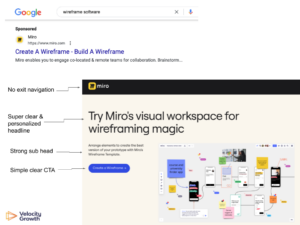How Psychology Can Impact Your Marketing
You might not have realised it, but psychology plays an important role in marketing. As the scientific study of the human mind and behavior, psychology offers key learnings on how to differentiate your marketing campaigns to make these resonate and engage your target audience. In this article, we delve into this further, taking a look at the relationship between psychology and marketing, sharing tips to enhance your marketing.
The impact of psychology on marketing
You might have invested time and effort into building your online store; to then struggle to make sales. It could be that your business has grown in the past 6 months but then plateaued. Or maybe you’ve already built a successful business, and now want to set your next big goal. Whether you are trying to attract your first customer or your 10,000th customer, driving traffic to your online store is essential to growing your business. But how?
Attracting customers in today’s content-saturated world is not easy, and so being relatable and resonating with the customer is more important than ever. Here are some of the factors to consider:
The impact of emotions on marketing. Emotions are a big part of the buying process. In fact, emotions have a much greater impact on the buying process than facts or logic. So, if you can connect with your audience on an emotional level, you will have a much better chance of selling to them. The goal is to create an emotional connection with your customers. This can happen by showing how your product is going to make their lives better in some way. It will also happen through the use of powerful words, pictures, and videos that people can relate to.
Understanding social proof. Social proof is a concept that shows how others can impact your decision to buy something. For example, if a lot of other people are buying something, you are more likely to feel comfortable buying it as well. This is why testimonials and reviews are so important when selling your products. Social proof also works with the fear of missing out or FOMO. FOMO is the fear that you will miss out on a lot of good things if you don’t buy into them. This is why it’s so important to create a sense of urgency in your marketing. For example, you can use phrases like “limited time offer” and “only 5 left in stock” to create a sense of urgency that will encourage people to purchase your product.
How to use psychology in your marketing
Often we are driven to subconsciously pause mid-scroll, and take notice. It might not be something obvious that draws our attention, but something in the messaging, imagery, or music for example catches on our emotions or personal experiences. The content catches our attention for a particular reason. The question is, which content subconsciously draws our attention better than the other content?
1. Reciprocity
Essentially, if you do a small favour for someone, they are more likely to do the same or more for you in return. In terms of your marketing, this approach can form the basis of your value proposition. For example, giving people content that is of value can increase their willingness to give you something in return. One way of improving your reciprocity might be your email pop-ups. We’ve all been there, instantly bombarded on a website with a “give me your details now” pop-up! It’s off-putting for many and can be a major source of annoyance. By delaying this until a prospective customer has had some time to consume the value you’re giving them can significantly increase the odds of them signing up and actively engaging.
2. The Decoy Effect
This is a commonly deployed psychology trick used time and again. You can see it used by Apple in their product offerings, prompting the preferred consumer choice, to newspapers in how they generate their preferred subscriptions, subtly funneling customers to the preferred subscription choice. The phenomenon occurs when customers have a change in preference between two options when a third option is introduced. A basic example of this is popcorn at the cinema originally highlighted by National Geographic. When asked to choose between two options of large and small, people are more likely to choose the smaller size. However when the third option, a medium, is introduced, the large is perceived as being of better value and therefore becomes more appealing to the consumer.
Introducing a mid-tier option can increase the overall perception of value, enticing more customers to choose the option perceived to have the greater value.
3. The Endowment Effect
This is our tendency to value things higher than their actual value when we own them. This can be used as part of your marketing strategy by giving your customers the opportunity to increase their ownership of your brand, product, or service. For example, why now use your social media to allow users to voice their feedback and interact with your brand. An easy way to do this is by using a free service such as UserVoice to gather feedback. If people feel closer to your brand, they’ll value it more.
4. The Propinquity Effect
This theory is based on the theory that the more we meet and interact with people, the more likely we are to become friends with them. The theory can be applied to more than just friendships and relationships. For example, technology can provide you with the opportunity to be closer to your customers by creating personalised communications between you and your customer. To use this theory in your marketing strategy it’s best to firstly map the points of online contact with your customers identifying where they are likely to interact with your brand. This may include physical locations as well as online. Propinquity is built through repeated interaction. Using personalised forms of communication as well as using multiple channels is a great way to have repeat brand interaction and to make your customers feel closer to your brand.
Applying theories of psychology to marketing makes it easier for businesses to understand what motivates customers and what doesn’t. It helps you to uncover and meet your customers’ needs, supporting you to understand what drives behaviour. At the most basic level, it brings a human element to your marketing, enhancing the relationship and engagement with customers.

Craig Zingerline is a 6 time founder who has helped dozens of companies scale their growth. Prior to Velocity Growth, Craig was the Chief Product Officer @ Sandboxx, Head of Growth at Upside Travel, CEO of Votion, Head of Growth at Red Tricycle, and VP at New Signature. In addition to in-house roles, Craig has advised and consulted with dozens of high growth startups (4 exits). He’s an award winning product strategist who has mentored hundreds of founders on growth, marketing, and product management.






